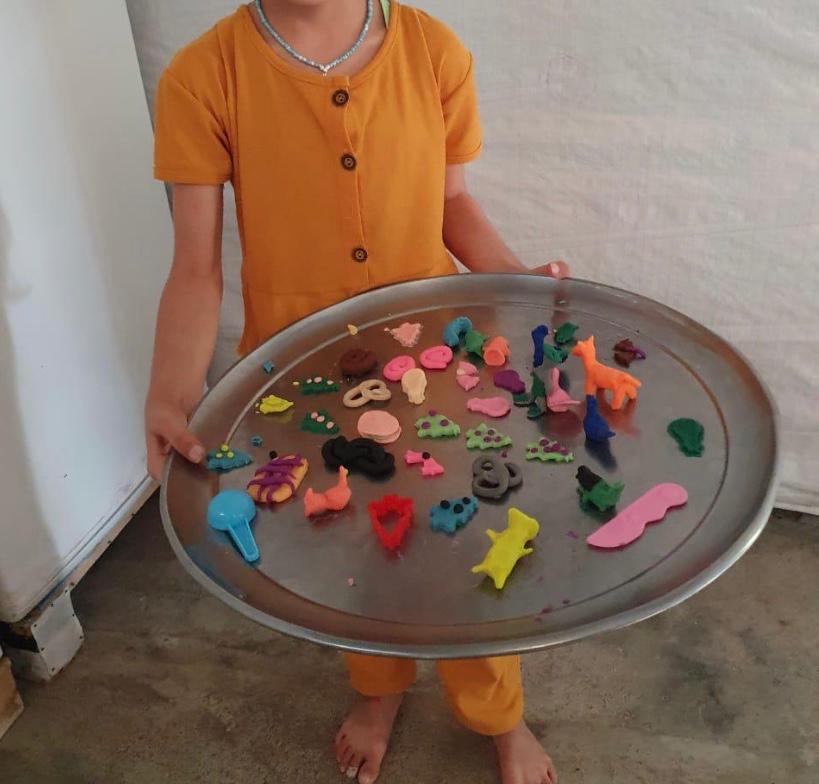How mobile messaging apps became essential to SEED’s psychosocial support services
SEED Foundation, like many others, has had to adapt how we provide our psychosocial support services due to the COVID-19 pandemic. There have been some challenges along the way and we’ve learned some important lessons. At SEED, we put good relationships and trust at the core of our work in the community. In the past, this had been based on face-to-face, in-person meetings, and group activities. As the switch to remote work took place in March, it soon became apparent that not only did we need to adapt to the structure of our psychosocial support (PSS) activities entirely but also an entirely new way to maintain our community relationships: smartphones. The answer was simple, but the results were surprising and exceeded our expectations.
Before COVID, the service delivery teams built relationships with community members through regular tent-to-tent outreach, engaging PSS activities, and consistent presence in the refugee and IDP camps. Since March, all of this has changed. Some of the changes in how PSS activities are held are temporary due to necessary COVID-19 regulations; others, such as using smartphones to contact community members, are permanent and will allow for easier interaction between SEED and the communities we serve.
When in-person PSS services had to stop due to COVID-19 restrictions, our team rapidly shifted to remote services – making calls to the participants, asking how they were and if they had urgent needs. “Just because the activities ‘stopped’ does not mean the relationships do,” says SEED’s PSS Technical Advisor, Joshua Lee. It became apparent while making these phone calls that community members often change their phone’s SIM cards to get better discounts and promotions. As PSS activities and services became increasingly reliant on connecting through the phone, this became a critical issue as SEED’s records were often out of date, despite efforts to maintain them.
We addressed this challenge in two ways. First, SEED’s community mobilizers used their relationships within the community to find updated numbers from the friends, neighbors, and relatives of the clients they were trying to contact. Second, to avoid the same problem in the future, the service delivery team switched to using smartphones and started contacting community members via popular mobile messaging apps such as WhatsApp and Viber — meaning contact information would remain saved even if SIM cards changed. This adjustment not only helped SEED keep its records updated, but it is also critical to community members’ safety and wellbeing.
The switch to smartphones also allowed the service delivery team to deliver remote PSS activities. SEED began by providing remote PSS activities to members of the same families instead of peers to limit social interaction in the camps. One of the first remote PSS activities was an arts and crafts activity for children that helped family members spend quality time together.
The handicrafts activity was successful in many ways. Not only did family members spend time together, but the parents in these groups expressed interest in taking part in tailored PSS activities. To further meet the needs, SEED created WhatsApp support groups for the parents. Each of these support groups has six participants: five community members and a SEED staff member. SEED has been using these groups to deliver tailored PSS activities to the group members, such as remote CV writing and remote workout activities. The parents have also said they want their children to participate in more PSS activities, so SEED held a remote storytelling activity for children and youth.
Despite the successful transition to remote PSS activities, there are still challenges. One of the most significant difficulties in using WhatsApp and Viber has been the community members’ access to the internet. Poor internet connections can be an issue, that means some community members can only share voice notes rather than join longer calls, so the PSS activities are structured so that every member has the chance to share one voice note during the session. Moreover, most families share one phone, which means delivering remote PSS sessions to select groups of boys, girls, or teenagers from different families is not always possible.
Despite the difficulties, the SEED team is working hard to create and structure PSS activities based on community members’ needs and abilities. The hard work is paying off; PSS numbers have increased since March. Parents are continuously contacting SEED themselves and asking about remote activities for their children to take part in. They are also asking for sessions on heavily sensitive, but crucial social topics such as ways to end early child marriage.
Additionally, SEED has been providing remote training for its service delivery team on delivering remote activities. SEED’s community coordinators attended a two-day training on delivering remote sessions for adolescent girls on topics related to gender-based violence (GBV). Still, the big question according to Joshua from SEED is, “Is it safe to conduct these groups remotely?”
Many questions remain unanswered, and the best method for remote PSS activities is an evolving process However, while NGOs, like SEED, work to find best practices, community members remain resilient. “For most people, they are still engaging in life; they still want what they want; they are still able to laugh; they are still able to make friends. So I think being crisis-oriented is not what we are doing, we are responding to a crisis, but we are listening to what people want, and what they want are long-term activities and support,” Joshua concludes.





